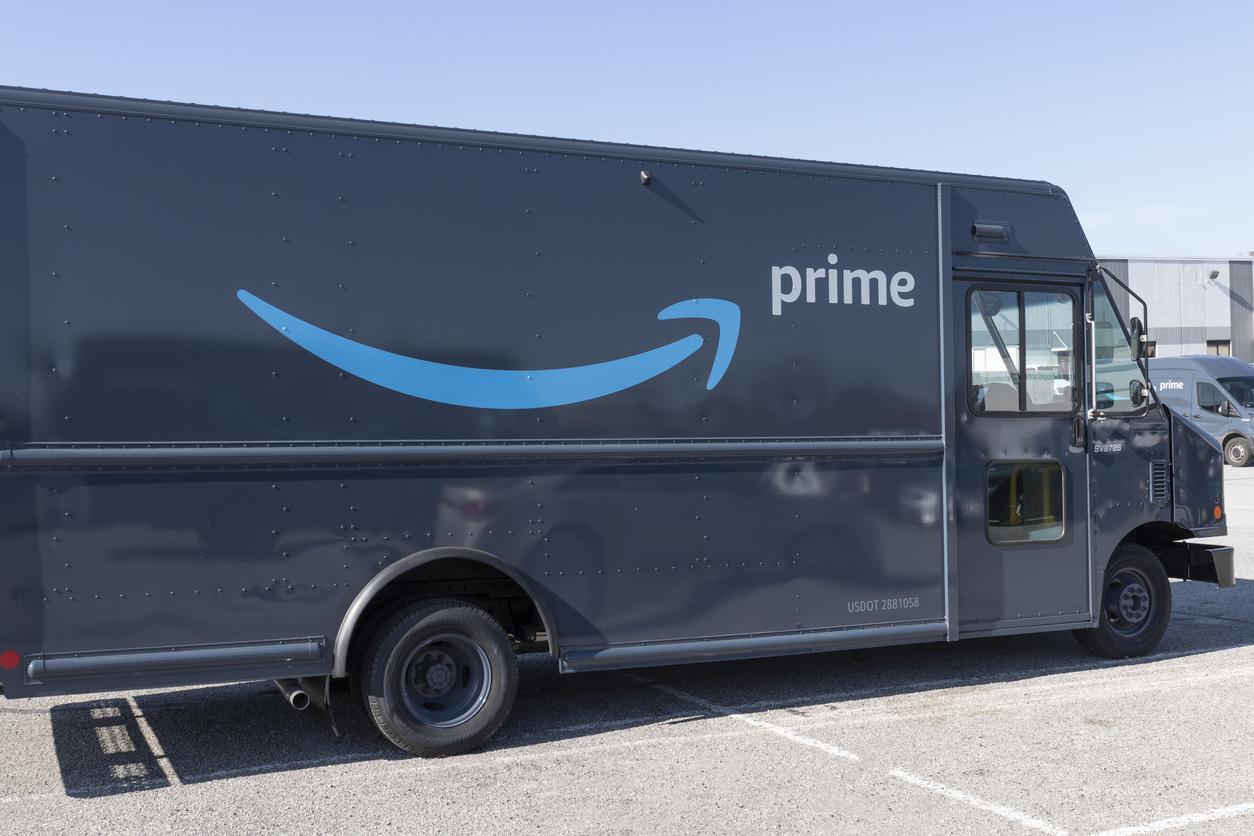We’ve found lots of scams this week in which scammers impersonate famous brands, including Amazon Prime Day, DHL, USPS, CVS, and Louis Vuitton. Would you have been able to spot all these scams?
Phishing Scams
Impersonating trusted brands, and under a variety of pretenses, scammers love to spread phishing links via text message or email that lead to phishing sites designed to steal your personally identifiable information (PII): bank log-in details, email address, Social Security number, credit card number, and more. With your PII, scammers can commit other crimes, such as identity theft!
Most commonly, the phishing sites will be disguised as fake log-in pages, where scammers can record your log-in credentials and other data. In other instances, scammers will take you to fake online survey forms, with the same goal of deceiving you.
Fake Amazon Prime Day Promotional Text
Amazon Prime Day is coming on July 11 – 12 this year, and scammers are ready with a bunch of fake text messages as well as other bogus materials with which to trick you. This week, we’ve seen scammers promoting fake Amazon Prime Day campaigns via text messages:
- Prime packages could be waiting for those who sign up. Want to try one? <URL> (SNT – text STOP to unsub)
The link leads to an online form that guarantees you free Amazon products:

If you proceed with the website and submit personal information, scammers can record it all and use it to commit crime. Be careful!
Block Spam and Scam Texts for FREE
For an easy way to avoid clicking on malicious links inside text messages, you’ll want to check out Trend Micro Check — our 100% FREE mobile app that blocks scam and spam texts from entering your inbox.
Not only can it block unwanted texts, but Trend Micro Check can also keep you safe from malicious links on all your messaging apps (WhatsApp, Telegram, Tinder, etc.) and shield you from dangerous sites as you browse the web. Download today for free (available for Android and iOS).
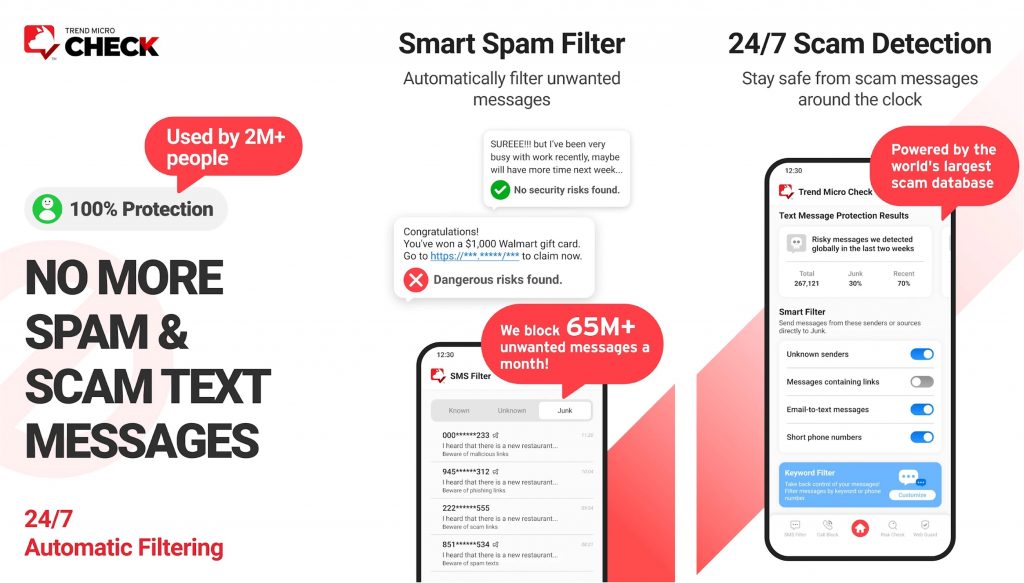
Besides shopping sites, one of the most common tactics scammers use is to pose as delivery companies and send fake package notifications. Below are some examples.
Fake DHL Text Notifications
DHL is one of the most impersonated delivery companies in phishing attempts, and we’ve reported on it many times before. Falsely claiming that you need to pay for an order, scammers instruct you to click on the attached malicious link:
- Your order will be within your hands directly after you complete the payment of 1.99 EUR <URL>
The link will take you to a fake DHL page that requires you to submit credit card credentials to “pay” for the delivery fee. Don’t do it! There will be NO packages delivered, and scammers can steal all the information you’ve entered and use it for their own profit:
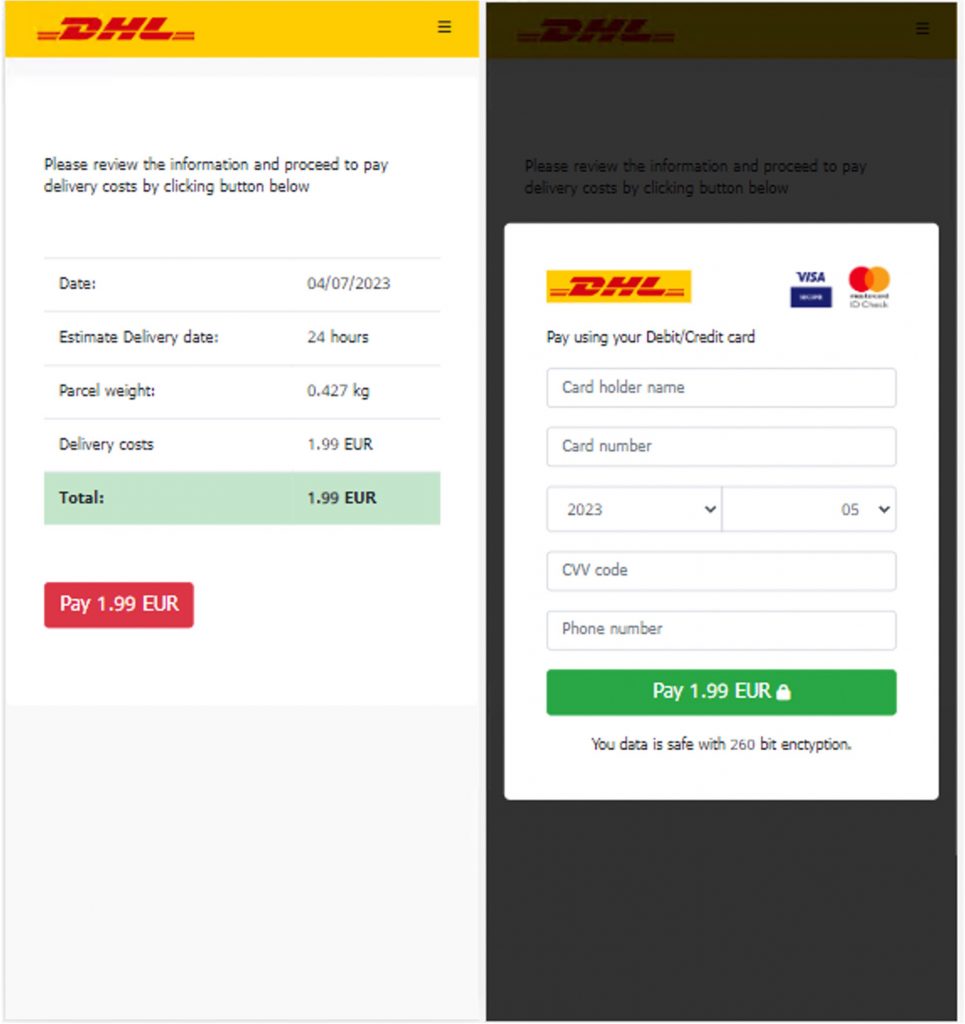
Fake USPS Delivery Texts
Another delivery service, USPS, is also often used in phishing attempts. Sending fake text notifications, scammer try to convince you that you need to update your delivery details to get a “suspended” package:
- FROM: USPS Subject: Due to an invalid address You have a package thats need to be delivered, but it has been suspended due to an incorrect delivery address. If you do not update your address before 00 hours, your package will be returned to sender. To delivery your package, please update your address by click the link below. <URL> Kind regards, USPS Team Notification ID : <PHONE>
Again, that attached phishing link will take you to a fake USPS page (normally a fake tracking page), which aims to collect your personal information. You already know what will happen next: don’t fall for it!
Fake CVS Pharmacy Survey Campaigns
Last year we wrote about fake CVS texts and emails, and this week there’s a new wave of CVS phishing attempts:
- C.V.S.Care: Dear <NAME> you will forfeit a <MONEY> in-store credit if you <NAME>’t finish our survey today. Your code is #CV000 Claim Your Unused In-store Credit Here <URL>
Featuring “in-store credit” as the prize of an online survey, the fake texts prompt you to click on the attached phishing link that leads to a fake CVS Pharmacy survey form. As we’ve stressed multiple times, everything you typed and sent via that form will end up in scammers’ hands. Watch out!
Fake Louis Vuitton Emails
“Limited Time Offer: Louis Vuitton Bags for Just $149 – Shop Now!” Does that sound too good to be true? It absolutely is! We found that scammers, as usual, are posing as Louis Vuitton and sending fake sales campaigns via email this week:
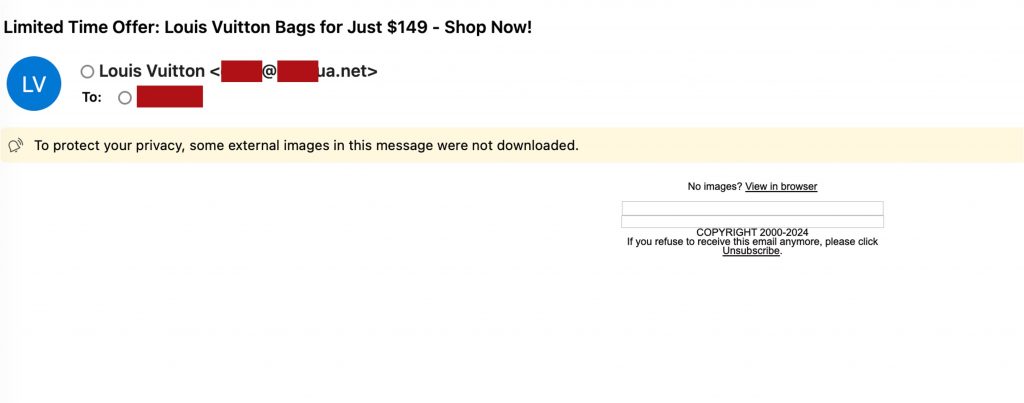
The link in the email will lead to a fake Louis Vuitton online shop that features all kinds of crazy discounts — don’t shop on this site!
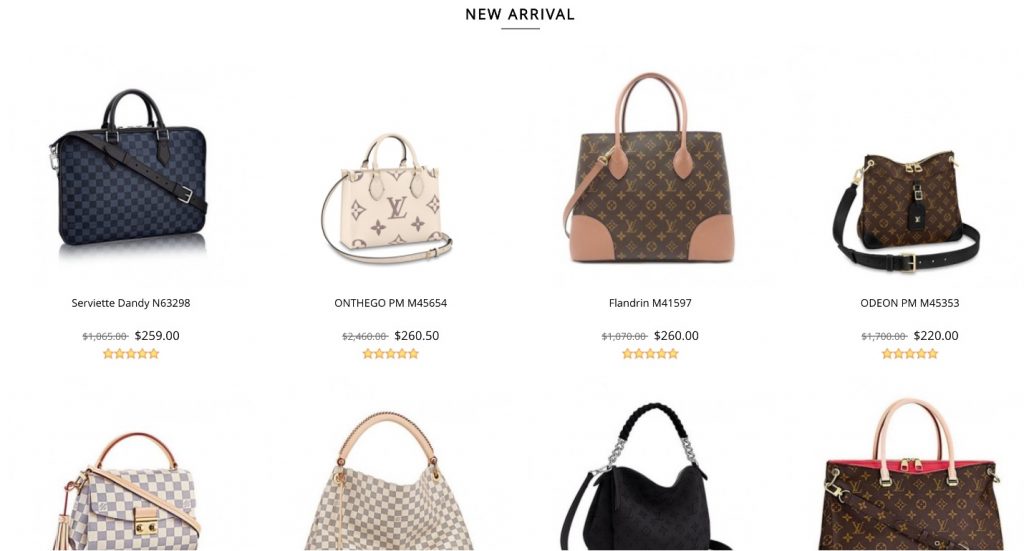
Tips to Stay Safe Online
- Double-check the sender’s mobile number/email address. Even if it seems legitimate, think twice before you take any action.
- Free gifts are a red flag.
- Only use official websites/applications. Never click on dubious links! (Use Trend Micro Check ).
- Check if any of your PII has been leaked and secure your social media accounts using Trend Micro ID Protection.
- Finally, add an extra layer of protection to your devices with Trend Micro Maximum Security. Its Web Threat Protection, Ransomware Protection, Anti-phishing, and Anti-spam Protection will help you combat scams and cyberattacks.
If you’ve found this article an interesting and/or helpful read, please do SHARE it with friends and family to help keep the online community secure and protected. Also, please consider leaving a comment or LIKE below.
